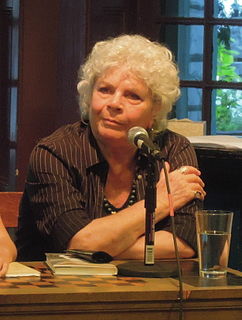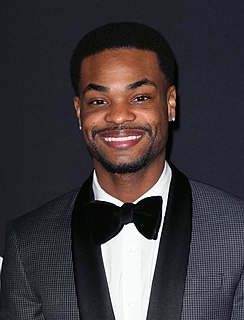A Quote by Pema Chodron
When there's a disappointment, I don't know if it's the end of the story. It may just be the beginning of a great adventure.
Related Quotes
Letting there be room for not knowing is the most important thing of all. When there's a big disappointment, we don't know if that's the end of the story. It may just be the beginning of a great adventure. Life is like that. We don't know anything. We call something bad; we call it good. But really we just don't know.
If the point of life is the same as the point of a story, the point of life is character transformation. If I got any comfort as I set out on my first story, it was that in nearly every story, the protagonist is transformed. He's a jerk at the beginning and nice at the end, or a coward at the beginning and brave at the end. If the character doesn't change, the story hasn't happened yet. And if story is derived from real life, if story is just condensed version of life then life itself may be designed to change us so that we evolve from one kind of person to another.
For those of us who take literature very seriously, picking up a work of fiction is the start of an adventure comparable in anticipatory excitement to what I imagine is felt by an athlete warming up for a competition, a mountain climber preparing for the ascent: it is the beginning of a process whose outcome is unknown, one that promises the thrill and elation of success but may as easily end in bitter disappointment. Committed readers realize at a certain point that literature is where we have learned a good part of the little we know about living.
Keep a diary, but don't just list all the things you did during the day. Pick one incident and write it up as a brief vignette. Give it color, include quotes and dialogue, shape it like a story with a beginning, middle and end—as if it were a short story or an episode in a novel. It's great practice. Do this while figuring out what you want to write a book about. The book may even emerge from within this running diary.
The story you envision as you start out is always a great story; when the facts turn out to be different from, or more complex than, what you expected, your first reaction is always disappointment. That's when you must fight the urge to bend the story to your preconceived notions. First, it's dishonest. And second, in the end, the truth is always the best story.
Give me an adventure. I'm not talking about some massive adventure. Just something that would make getting fired seem small. Something that I might remember when I'm old." "I can't predict the future," I said, "but based on what little I know so far, I'm afraid it has to be a massive adventure or nothing." "Great!" "Probably the kind of adventure that ends in a mass burial.
A love affair is like a short story--it has a beginning, a middle, and an end. The beginning was easy, the middle might drag, invaded by commonplace, but the end, instead of being decisive and well knit with that element of revelatory surprise as a well-written story should be, it usually dissipated in a succession of messy and humiliating anticlimaxes.
I don’t mind if the character is a small character, but I would just like her to have a journey in the film. Sometimes the characters are just there as a prop to further the man’s story. The great directors I’ve talked to, I’ve said listen, I don’t mind playing a woman that is a tiny part, but how does the story affect her? What can I play in the end that’s different from the beginning? Otherwise, it doesn’t make sense, because it’s just like being a prop.





































